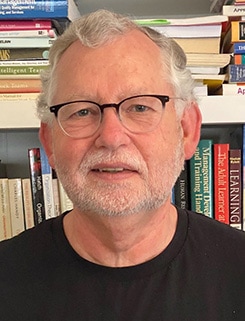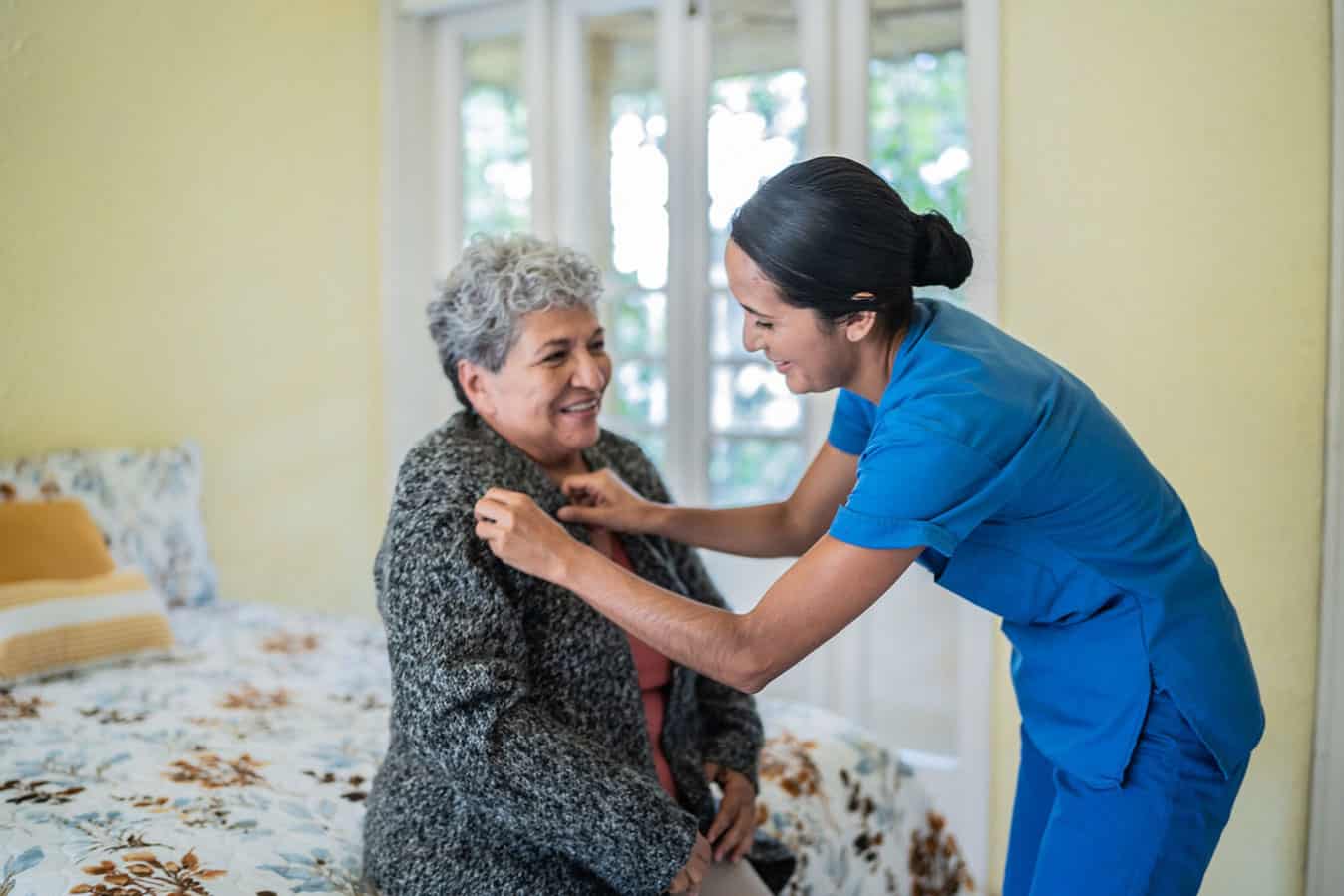Person-centredness, driven by leadership, expressed through meaningful multifaceted relationships, and lived authentically throughout the residential aged care facility (RACF), has real potential to contribute to positive change.
The Charles Sturt University (CSU) research explored the connection between leadership and person-centredness in residential aged care.
Before this five-year research project, Dr Sean Mack spent 18 years in the aged care industry as a management consultant, including as a contract quality assessor in the accreditation of RACFs.
“I’ve seen hundreds of places [RACFs] over time and have an interest in how organisations work and why the places that work well do so,” Dr Mack said.
“I sought to gain insight into leadership’s role in building, facilitating and sustaining a person-centred approach to working with residents, to inform and foster better practice. Fundamental to this objective was the assumption that person-centredness leads to more human, respectful, responsive and caring relationships.”
The research looked at how two RACFs with positive local reputations were interpreting, implementing and gauging the phenomenon of person-centredness.
“They didn’t necessarily adopt person-centred care officially, but they were known to provide good care to their residents. They put the person back in the centre of a culture where person-centredness is lived, not just espoused. It is about being authentic and not paying lip service to these notions,” Dr Mack said.
The two RACFs in the investigation had similar challenges to those faced by other RACFs in the industry, including strains on resourcing, staff shortages and residents with behaviours of concern such as aggression.

The research explored the lived experiences of residents, family members, and the whole range of staff, in living, visiting or working in residential aged care.
The findings from the research were congruent with the outcomes of the recent Royal Commission into Aged Care Quality and Safety: the older person is put first, with an emphasis on compassion, connection, respect for their individuality and a priority on a relationship-focused approach inclusive of everyone in the RACF community.
“Focusing on lived experiences has stripped bare these concepts of leadership and person-centredness to their essence: the core being love, human connection, relationships, care, compassion and respect.
“It is moving to a whole other level, which legitimises relationships. It provides evidence and legitimises that relationships are important,” Dr Mack said.
This view represents a special or different way of looking at person-centred care (PCC), he said.
“Named more appropriately, it is a person-centredness that goes beyond care. It goes back to authenticity and relationships. It is not a one-on-one event; it is not a one-occasion event. It’s a whole culture. It creates a culture of relationships, of positive relationships among all participants.”
The key findings
The key findings relate to three interrelated major themes, which have implications for clinical practice:
- Caring for the whole person
Person-centredness is about knowing, understanding, caring for, and relating to, the whole person. It is a continuing process of discovery.
“It’s taking the time to connect with someone, making it a priority to learn about that person in their entirety,” Dr Mack said. “It is seeing people as people, and resisting becoming task orientated.”
- The person-centred environment
Person-centredness finds expression in loving and caring communities, characterised by respectful relationships for residents, family members and staff.
Such environments are person-centred towards all; it is cultural. There is a sense of home, family, and connection.
- Person-centred leadership
Person-centred leadership is not limited to key individual leaders but is shared throughout the organisation with a genuine non-hierarchical spirit. The leadership is characterised by engagement, openness, approachability, respect for staff and others, inclusion, and a sense of all being in it together. It is about relationships.
The dynamic interplay of shared leadership and inclusive person-centredness forms the fabric of the person-centred environment – the caring community.
Practice and policy implications
From the research, a view emerged that person-centred care equated to the total resident experience in the context of the whole environment including interaction with the range of staff, across all shifts.
For person-centredness to thrive, supported by person-centred leadership, it must be lived throughout the RACF, applying to staff as well as residents and family members, and spreading to every facet, every corner, and every relationship and interaction, the research identified.
“Person-centred care is not something that can only be enacted at the bedside, nor can it be the sole responsibility of the care worker to enact it, when other aspects of practice are not in concert with person-centredness,” Dr Mack said.

“If this holistic approach is enacted, it has real potential to contribute to positive change in residential aged care and other environments where person-centredness is the goal.”
Dr Sean Mack has 40 years of experience in organisational development and improvement as a practitioner, self-employed consultant, and researcher. For 18 years (until 2017), he worked as a management consultant for residential and community aged care providers. In the same period, he was engaged as a contract quality assessor for aged care accreditation, which involved visiting and assessing hundreds of RACFs.
Sean was keen to look deeper into person-centredness in residential aged care and its connection to leadership. Hence, the purpose and focus of his PhD completed in 2022 through CSU.









One Response
Good to see work on person-centred leadership, like that of myself (Shaun Cardiff) and Brigide Lynch, being continued in the southern hemisphere.
Such leadership is also a key area of critical debate, education and developmental work within the Person-Centred Practice – International Community of Practice: https://www.pcp-icop.org/
Cardiff et al (2018): https://onlinelibrary.wiley.com/doi/abs/10.1111/jocn.14492
Lynch et al (2015): https://www.fons.org/wp-content/uploads/2024/03/IPDJ_05suppl_05.pdf